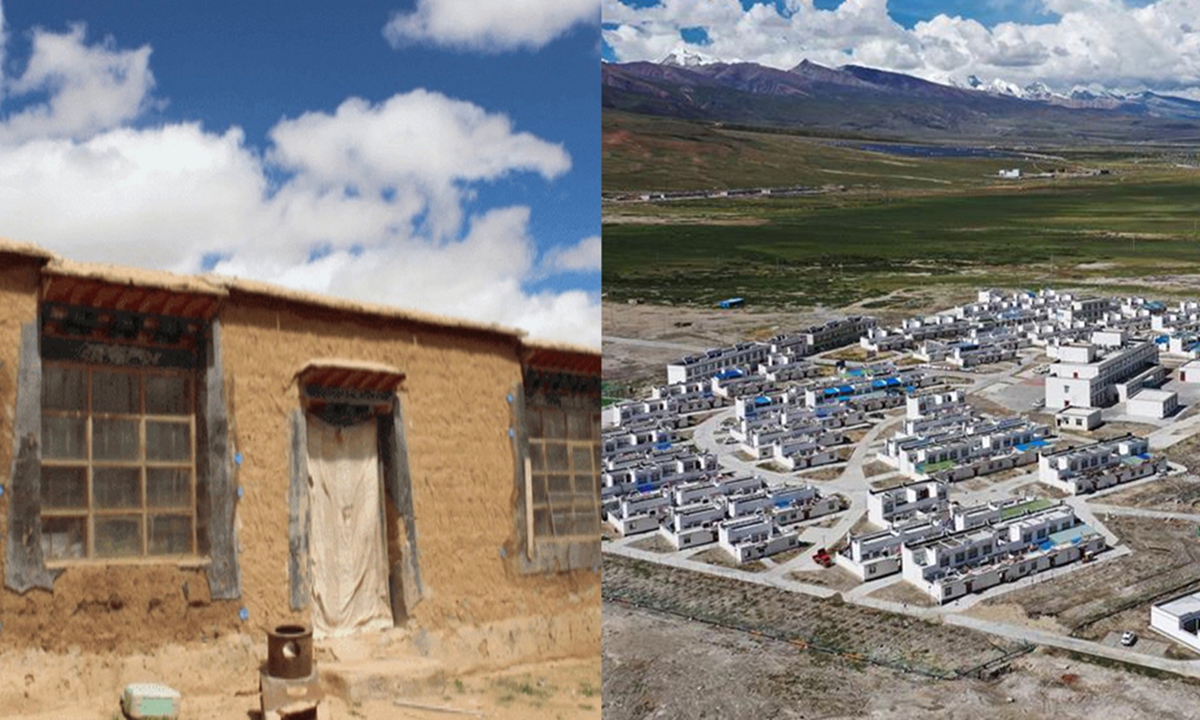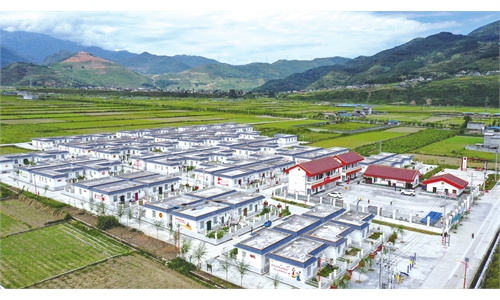
Shuanghu County, Tibet Autonomous Region, was removed from poverty list on December 9, 2019. As of October, 2020, about 35,000 resettlement areas have been built nationwide, and more than 2.66 million units of resettlement housing have been built for the poor. Over 9.6 million impoverished people have relocated into new homes.
China has recently declared "complete victory" in eradicating absolute poverty. For a developing country with a large population and uneven geographical development, the reasons for China's achievements are worth exploring.
Eradication of extreme poverty has been one of the main objectives of the entire development strategy of China and it has involved massive mobilization of resources. It represents a historically unique experience of global significance because of its magnitude, and also the systematic and persistent efforts that enabled its success.
According to the World Bank, more than 850 million people were lifted from poverty in China over the past decades, which is a historically unprecedented achievement. Moreover, eradication of extreme poverty in China did not impede the rapid development in other spheres that happened at the same time. This means that the development strategy was well conceived. But all this is not the end of history. It will be important to see how the future tasks of the alleviation of poverty (other than extreme poverty that has been eradicated) will be approached in China's 14th Five-Year Plan (2021-25).
China added a larger number of consumers to its own economy, and this helps countries who export to China. In Latin American countries, for example, exports of commodities to China have been a major factor in their own development and poverty alleviation programs. But will the experience of China, "the Chinese model" influence policymaking in other countries? This is more difficult to say.
Each country - large or small - has its own profile of poverty. And poverty is not only about the shortage of material resources, it is also about a number of other, country-specific factors, such as geography, climate, history and environmental degradation. Moreover, policymakers often don't approach extreme poverty as a problem that can and must be solved, but rather as a problem that needs to be contained or managed. So, for example, state subsidies of basic foodstuffs or fuel alleviate the plight of the people, but don't lead to elimination of extreme poverty. China's experience is not properly studied around the world. It is true that China is unique, but this should not prevent policymakers from poverty stricken countries to study the Chinese experience more attentively.
Good national planning and proper mobilization of people would help poverty reduction. But we must be aware, not all countries have the needed planning capacity or ability to articulate sufficiently strong political will to mobilize their whole population. As I said, they should study the experience of China more attentively. International organizations could help. The UN Development Program is doing good work in that regard, and so are other relevant organizations in the UN System. But clearly, more is needed.
There are also a certain amount of poor people in some Western countries. In the past three or four decades the West has been influenced by what is called "neoliberal ideology" placing all the expectations for development in the market forces, in the efforts of each individual, etc. The emphasis on deregulation and the weakening of public policy have added to the problems that are now more serious than before. But we must also understand the resilience of the Western societies and the fact that the situation is not the same everywhere.
In the continental Europe, in the EU, "the European social model" remains in place. Healthcare is universal, quality education is free, and social safety nets are strong. In the US (and to a much smaller extent in the UK) this was not the case. Right now the policies for the post pandemic recovery will have to address these problems. For example, a major raise in the minimum wage proposed currently in the US would signify an important policy re-direction with a potential to improve the social situation of many and contribute to the elimination of poverty altogether.
The article was compiled by Global Times reporter based on a written interview with Danilo Turk, former president of the Republic of Slovenia. opinion@globaltimes.com.cn

